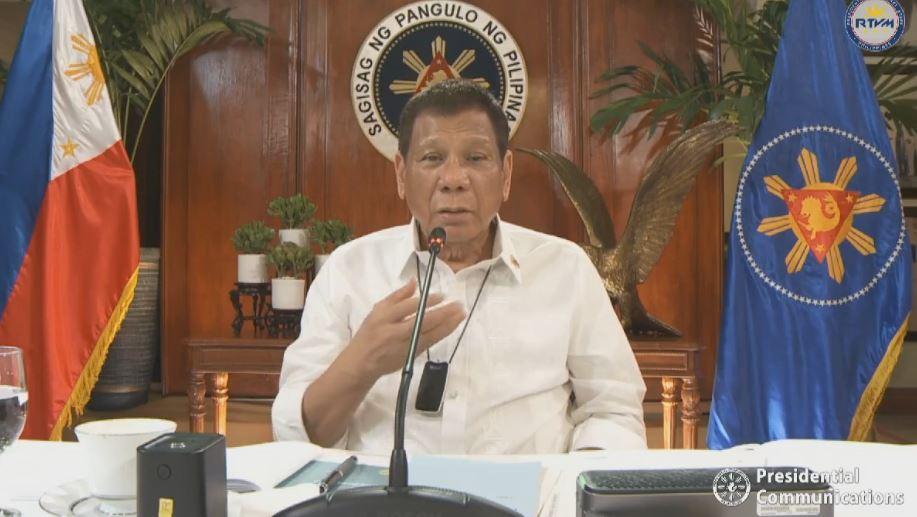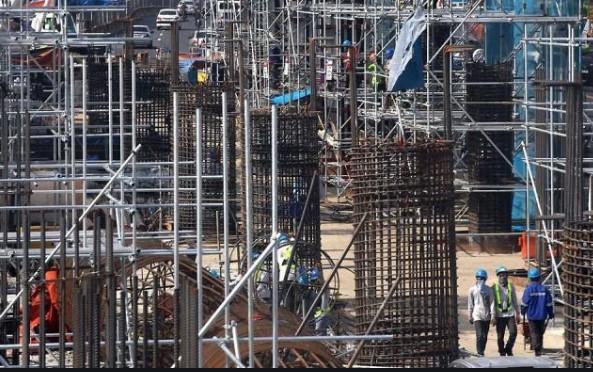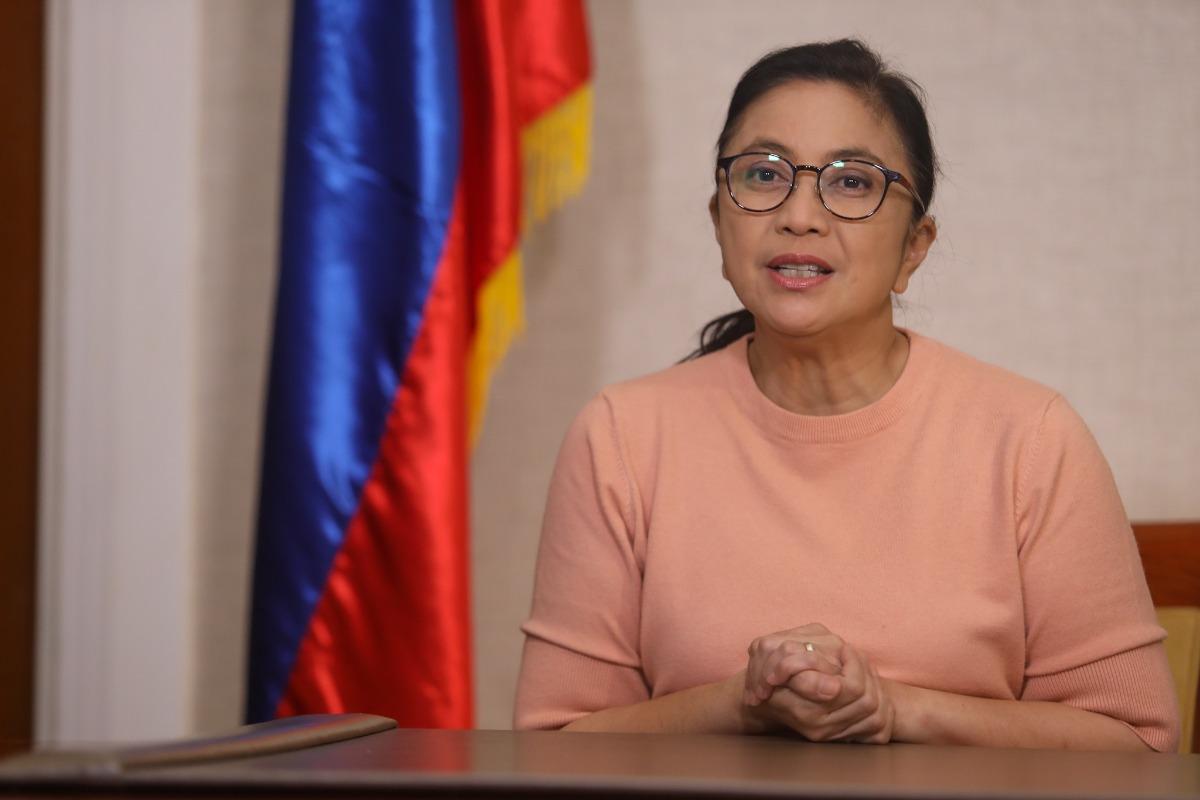Victories and controversies as Duterte presidency enters homestretch in 2021

Rodrigo Duterte rose to power in June 2016 on a campaign promise to make bold changes in the country, from eradicating illegal drugs and corruption, shifting to a federal form of government, to remodeling of Philippine foreign policy.
Four years on, Duterte's presidency faced several challenges, both here and abroad, and scored some victories, all of which can play a crucial role in shaping his legacy after he leaves office in June 2022.
Policies, gains
Duterte, the first Philippine president from Mindanao, supported measures to promote public welfare. He signed laws and issued executive measures such as free public college education, universal healthcare, free irrigation to farmers, free feeding program for undernourished school children, salary increases for soldiers, policemen, firemen and government workers, higher SSS pension of senior citizens, free internet access in public places, expanded maternity leave, 10-year validity period for regular passports, five-year validity period for drivers' licenses, ease of doing business, and freedom of information for its strict compliance by the Executive department.
His government also implemented tax reform by reducing personal income tax rates and at the same time increasing excise taxes for petroleum products, automobiles, and imposing levy on sugar sweetened beverages.
A bill seeking to reduce corporate income taxes and rationalize the fiscal incentives system is still pending in Congress. His government also embarked on an ambitious infrastructure program under Build, Build, Build, which has generated millions of jobs for Filipinos.

In one of his dating moves, Duterte closed the world-renowned Boracay Island to tourists for six months in 2018 to give way to rehabilitation works, and ordered the clean up of the heavily polluted Manila Bay.
The President has taken steps to ensure lasting peace in Mindanao including the creation of the Bangsamoro Autonomous Region in Muslim MIndanao (BARMM), which was a result of the passage of the Bangsamoro Organic Law in July 2018.
The BARMM, which replaced the Autonomous Region in Muslim Mindanao, enjoys expanded land and water jurisdiction, fiscal autonomy and increased share in national government resources, among others.
The Philippine economy grew at an average of 6.5% from 2016 to 2019 before it plunged into recession this year due to the COVID-19 pandemic. Pro-Duterte candidates won nine of 12 Senate seats that were contested in the 2019 midterm elections, while the opposition ended the campaign empty-handed.
War on multiple fronts, controversies
Like his predecessors, controversies and challenges also hounded the tough-talking Duterte and his government over the past four years.
"There are definitely missed opportunities in the last four years given his continued popularity, both Houses of Congress controlled by his allies, the weakness and lack of unity of the opposition, etc," University of the Philippines political science professor Maria Ela Atienza told GMA News Online.
Congress has yet to pass Duterte's proposal to shift the country's form of government from presidential to federal in a bid to address economic and power imbalances, and the reimposition of the death penalty for drug offenders.
A self-proclaimed socialist, Duterte tried to reach a political settlement with the communist rebels by extending concessions such as the temporary release of the rebels' peace consultants from prison and the appointment of left-leaning personalities to the Cabinet.
Four years later, the prospects of peace have become remote as ever as the negotiations collapsed after Duterte lamented what he said were continued attacks by rebels on troops and civilians.
In early December, he declared that there would no longer be any ceasefire between the government and the Communist Party of the Philippines-New People's Army until the end of his term.
Duterte imposed martial law in Mindanao in response to ISIS-inspired Maute rebels that laid siege to Marawi City in May 2017 and allegedly attempted to establish a caliphate for the terror group.
The five-month battle between government troops and the Maute rebels killed more than a thousand people and left the once bustling city in ruins. Officials have promised to complete the rehabilitation of the city by December 2021.
Frustrated with the alleged rampant corruption in government, Duterte told the nation several times that he wanted to resign. In October this year, he ordered a Department of Justice-led task force to investigate allegations of corruption across state agencies.
"Corruption, especially in high places, continues," Atienza observed, even as Duterte fired several officials for alleged corruption, incompetence, and excessive travels.

Meanwhile, Duterte has repeatedly dismissed criticisms over the alleged extrajudicial killings of drug suspects, his rapprochement with China in exchange for better economic and trade ties, and misogynistic remarks, as well as the state of his health.
The President lashed out publicly at his perceived enemies such as Vice President Leni Robredo, former Chief Justice Maria Lourdes Sereno, communist rebels and their alleged sympathizers, and media entities such as Rappler, the Philippine Daily Inquirer and ABS-CBN, as well as human rights groups.
Duterte lambasted the Catholic Church several times, bringing up the supposed misdeeds of clergymen and claiming to have been molested by a priest when he was a young student.
He said the clergy should not use the pulpit to attack him and his policies, particularly the drug war.
Critics also linked the non-renewal of ABS-CBN Corporation's legislative franchise in July to Duterte's previous threats to take the media giant off air over his unaired political advertisements in 2016.
Malacañang accepted the decision of the House of Representatives, stressing tha Congress has the mandate to grant a broadcast franchise.
The Palace also refuted rumors about the President’s health condition, including claims the 75-year-old leader flew to Singapore in August for emergency treatment.
Duterte has admitted to having Buerger's disease, daily migraines, myasthenia gravis, back pains, and Barrett's esophagus.
But a lawyer's petition for Malacañang to be compelled to release Duterte's health records was junked by the Supreme Court (SC) for lack of merit. The Palace said the 1987 Constitution only requires disclosure in case of serious illness.
Duterte’s decision to temporarily set aside the country's arbitration victory on the South China Sea dispute has led to a marked improvement in Manila’s economic and diplomatic relations with Beijing, but angered critics that accused him of kowtowing to China.
Duterte, however, declared before the United Nations General Assembly in September this year that the ruling against China's excessive maritime claims is "beyond compromise and beyond the reach of passing governments to dilute, diminish or abandon." He rejected attempts to undermine the ruling of the Permanent Court of Arbitration.
In contrast, he accused the United States, a traditional ally, of meddling in the country’s internal affairs and threatened to end the Visiting Forces Agreement, which governs the presence of American troops in the Philippines for military exercises.
Protests broke out in November 2016 after the late President Ferdinand Marcos was laid to rest in clandestine rites at the Libingan ng mga Bayani (LNMB) in Taguig City.
His interment, backed by Duterte, came after the SC ruled that no law was passed to prohibit the burial of Marcos, who had met the military regulations to be buried at the LNMB, having been a former president, statesman, and war soldier.
The Duterte administration, meanwhile, faced allegations of not acting fast enough and having no clear direction on how to address the COVID-19 pandemic, which has already killed more than 9,000 people in the Philippines.
Presidential spokesperson Harry Roque disputed this, saying the government took measures that resulted in the relatively low mortality rate for COVID-19 and improvement in the hospitals’ capacity to treat severe and critical cases.
Roque added that the Philippines, through policies such as lockdowns, prevented up to 3.5 million infections based on projections from experts.
With the pandemic in full swing, the national government’s debt hit a record-high of P10.028 trillion as of end-October 2020 as the Duterte administration beefs up the country's war chest to address the public health crisis.
"COVID-19 has further complicated any assessment of his 'legacy' and challenged many of his plans for the remainder of his administration," Atienza said.
"Since this is a global phenomenon, he will always be compared with other leaders in other countries in terms of decisiveness and effectiveness to address the pandemic. Sadly, this is another area where he has been failing and it appears that his administration has not been learning from the lessons of the early days of the pandemic."
But Roque said government programs were put in place to assist the public in the face of the COVID-19 crisis.
"Cash subsidies have helped millions of target beneficiaries survive the enhanced community quarantine. Other vulnerable sectors received various forms of assistance as well from many government programs that were crafted to mitigate the effects of COVID-19," he added.
"In our battle against COVID-19, we have gone from protecting lives and prioritizing public health over the economy to balancing the need to protect lives and livelihood as we strive to gradually bring the economy back."
The 2021 national budget contains an allocation of P72.5 billion for the purchase, storage, transportation, and distribution of COVID-19 vaccines.
No criticism about the government's response to the typhoons that hit the Philippines in November escaped Duterte's attention as well.
Duterte, in defending his absence from government briefings as massive floods submerged parts of Luzon due to typhoons, unabashedly pinned the blame on Robredo.
The most recent was also the most searing, as he accused Robredo of leading calls for his physical presence that trended on social media (#NasaanAngPangulo) before delivering a low blow by asking where does the Vice President go to sleep at night and insinuating that Robredo— a widow — has a lover.
He vowed to make Robredo’s possible 2022 presidential bid a nightmare.
"When you start your campaign kung magtakbo ka ng presidente, waswasan kita nang husto. Well, this is your nightmare," Duterte said in a televised address on November 17.
That may be true given his vast authority and resources as President, but it does not mean that he is not facing a possible nightmare himself.
The International Criminal Court’s (ICC) Office of the Prosecutor said on December 15 that there is reasonable basis to believe that crimes against humanity were committed in the Duterte administration's war on drugs.
In its report, the ICC prosecutor said “the Office is satisfied that information available provides a reasonable basis to believe that the crimes against humanity of murder, torture, and the infliction of serious physical injury and mental harm as other inhumane acts were committed on the territory of the Philippines between at least July 1, 2016 and March 16, 2019 in connection to the WoD (war on drugs) campaign launched throughout the country."
The prosecutor's report also said there seemed to be a limited number of investigations and prosecutions initiated and in some cases completed at the national level in connection with perpetrators of criminal conduct that allegedly took place amid the drug war.
Given the findings, ICC Prosecutor Fatou Bensouda said her office will decide whether to seek authorization from the court to open an investigation within the first half of 2021.
A DOJ-led panel is conducting a review of 5,655 police operations that resulted in deaths to determine whether to file charges against the officers involved.
The panel was created after United Nations human rights chief, Michelle Bachelet, released a report finding "near impunity" for alleged extrajudicial killings committed in the Philippines.
Roque has insisted that the Philippines is already out of ICC's jurisdiction since it pulled out of the Rome Statute--the treaty that established the ICC--in 2019.
The President repeated this argument on December 28, saying the ICC has no right to intervene in domestic affairs. He then went on to say that the Philippines has functioning courts, making the ICC of no use.
"If the court says that I should go to jail, I will go to jail. Walang problema ‘yan. I did what I embarked to do. It was an election promise," he said.
Duterte's argument of lack of jurisdiction did not stop the ICC prosecutor from conducting a preliminary examination into alleged crimes that have occurred on Philippine territory during the period when it was a state party to the Rome Statute from November 1, 2011 to March 16, 2019.
At least 5,942 drug suspects have been killed in legitimate police operations based on the latest records of the Philippine Drug Enforcement Agency, but such number does not include those killed by supposed “vigilante squads" emboldened by the President's rhetoric on "killing" drug suspects.
Counting those killed by such drug syndicates, the deaths could reach up to over 20,000 based on the tally of local and international human rights groups.
Malacañang said that the deaths linked to the drug war were neither state-initiated nor sponsored.
In 2018, Duterte said that the anti-narcotics drive would be as "relentless and chilling" as the day it began in July 2016. Authorities have already seized more than P56 billion worth of illegal drugs since the start of the campaign, according to government data.
2022
Despite all the controversies, the President remains hugely popular.
Ninety-one percent of Filipinos approved of the performance of the President based on the September 14 to 20 survey of independent pollster Pulse Asia, up from the pre-pandemic score of 87% in December 2019.
The same percentage (91%) of respondents expressed trust in Duterte. Ninety-two percent of Filipinos believed that Duterte has done well to prevent the spread of COVID-19.
"As we look forward with hope for the coming year, let me assure the public that this administration will ensure the efficient use of our resources through a sound fiscal policy that will enable us to overcome the debilitating effects of the pandemic on public health and our economy," Duterte said following the signing of the 2021 national budget on December 28.
"Let this therefore serve as an assurance to the Filipino: This coming year, we intend to recover as one nation."
As Duterte's presidency begins to wind down, the chief executive admitted that he has yet to meet the person who can lead the country in the future.
“We're getting old and you know, the young are there. Wala pa akong nakita na new crop of politicians dito sa ating bayan ngayon. Frankly, wala akong nakita. Wala akong nakita na puwede talagang maging presidente,” Duterte, who is limited to a single six-year term, said in a speech in Malacañang on March 3.
He once teased his former top aide, Senator Christopher "Bong" Go, of harboring presidential ambitions, which was immediately denied by the lawmaker.
Robredo, Duterte's daughter, Davao City Mayor Sara Duterte-Carpio, and Senator Manny Pacquiao have also been floated as potential contenders for the country's highest post.
Calling the presidency a thankless job, Duterte has discouraged Mayor Sara from following in his footsteps "unless you are driven by patriotism."
Duterte’s successor will be determined in the May 2022 election, with the filing of candidacies expected to take place next year.
According to Atienza, 2021 will be crucial in deciding Duterte's political fortunes.
She said the first few months of 2021 will be the only remaining time to push for legislative reforms, other executive actions, and for the administration "to take on a more effective way of dealing with the pandemic and its effects."
"By the third to last quarter of 2021, many of his so-called allies will be concentrating on the 2022 presidential elections," Atienza said.
"Perhaps, the administration will already be distracted by the need to promote a version of the 'legacy' of the Duterte administration favorable for the anointed candidate that they hope will continue and protect that 'legacy' and the President." —KBK, GMA News




